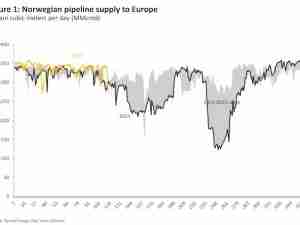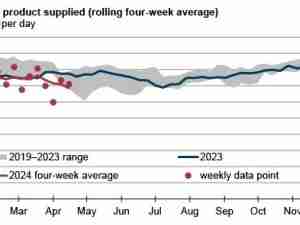Oman, the Gulf country most exposed to tumult of the oil-price war, plans to raise more than $1 billion in loans in the first half of this year to bridge its budget deficit, according to people with knowledge of the plans.
The sultanate, which is rated junk by the three major rating companies, is in talks with local and international banks about the borrowing, the people said, asking not to be identified because the talks are private. No decision has yet been made, they said.
If oil prices remain low, the government will focus on asset sales and reserves to cover a widening fiscal gap, one of the people said. The Ministry of Finance didn’t immediately respond to requests for comment.
The debt market has turned against Oman, the largest non-OPEC oil producer in the Middle East that’s been slow to implement fiscal reforms despite dwindling reserves. Its bonds led losses across the six-nation Gulf Cooperation Council in Monday’s market rout after Saudi Arabia fired the first salve over oil prices that sent crude to its biggest plunge in three decades.
Oil Crashes 31% in Worst Loss Since 1991 After Price War Erupts
What adds to Oman’s vulnerabilities is its reliance on exporting oil to China, where the virus outbreak is crippling demand for energy. The sultanate’s resistance to taking sides in regional disputes and adopting Saudi Arabia’s foreign policies also means it can’t count on Arab nations to come to its rescue.
Higher borrowing costs could further strain the nation’s public finances, considered among the weakest in the region. Its new ruler needs to address the nation’s ballooning debt and push through reforms to tame its budget deficit to win back investors’ confidence.
‘Significant Concession’
“It would be interesting to see the final pricing on this transaction,” said Angad Rajpal, the head of fixed income at Emirates NBD Asset Management in Dubai. “In the absence of a tangible policy response under the new leadership, bond investors would demand significant concession to get involved in the primary.”
The yield on Oman’s dollar bond maturing in 2029—issued last year—reached an all-time high of 6.9% as of 12:33 p.m. London time.
The sultanate’s weakening finances had prompted Moody’s Investors Service to downgrade its debt rating deeper into junk to Ba2 on Thursday—before oil’s latest plunge.
Despite facing what Oxford Economics has called a “crunch point” next year, when it has to refinance a maturing 1.5 billion bond, Oman has few options besides loading up on more debt. Moody’s expected the government’s debt to peak under 60% of gross domestic product by 2021, but Oman nearly hit that level already last year.
Oman’s general government debt was under 5% of economic output as recently as 2014, according to the International Monetary Fund.
The oil shock is also putting Oman’s currency peg in the spotlight. Traders are betting for the value of the rial to decline within the next 12 months—only possible if Oman abandons its fixed exchange rate against the dollar.
Oman Plans to Borrow $5.2 Billion to Plug 2020 Budget Shortfall
The sultanate is still coping with the impact of the last oil price crash in 2014 and is set to post its seventh straight budget deficit, according to the IMF.
Oman calculated its 2020 budget with a deficit of 2.5 billion rials ($6.5 billion) based on an average oil price of $58 per barrel, well above oil’s current level of about $35.
Oman Said to Cut Borrowing Plans as It Turns to Asset Sales
Soon after succeeding a cousin in January who had ruled for five decades, Oman’s Sultan Haitham bin Tariq Al Said said last month that he plans to lower debt. The country had planned to borrow 2 billion rials to bridge the bulk of the deficit.
Among Oman’s few options is to deliver on reforms or follow Bahrain in seeking assistance from wealthier neighbors—and perhaps consider turning to the IMF, according to Richard Segal, senior analyst at Manulife Investment in London.
“There is not much they can do,” Segal said. “It is the weakest link. Every country but Russia and Saudi Arabia are on the sideline, Oman more so.”










